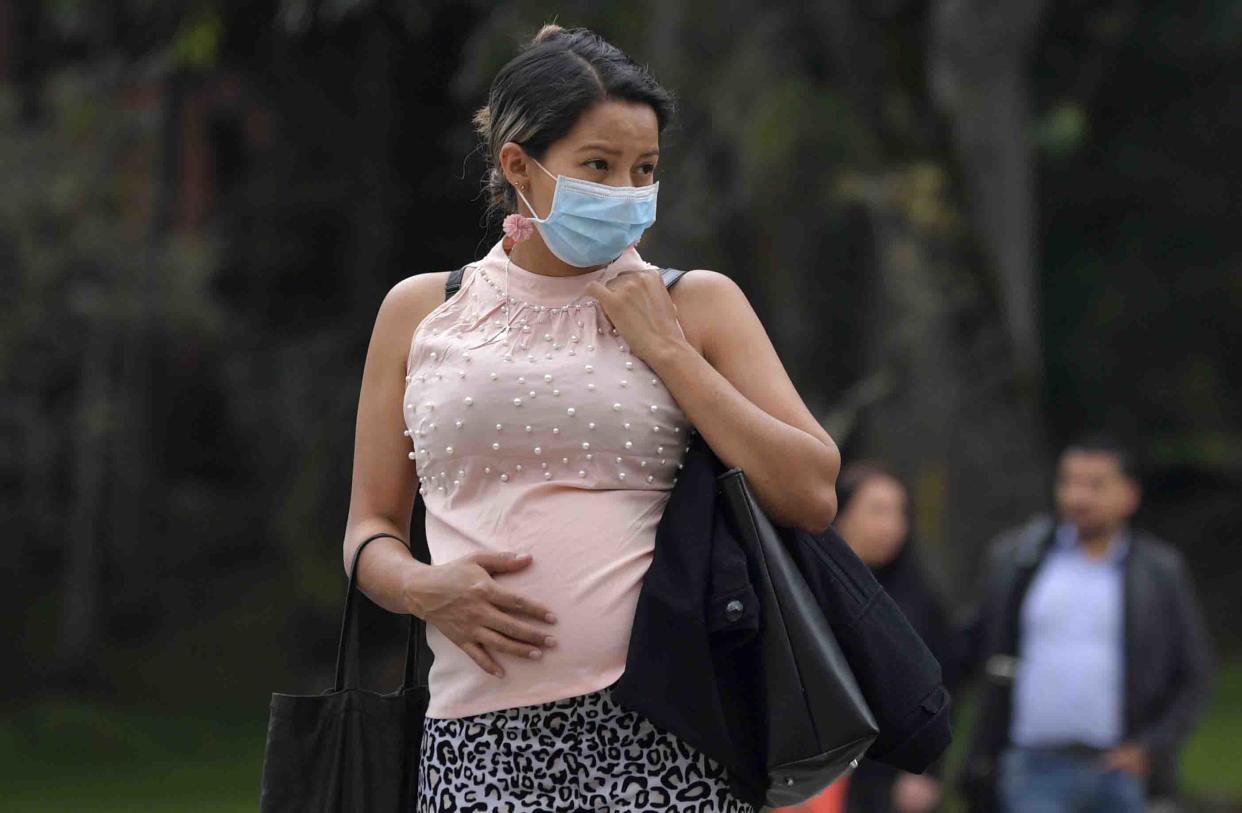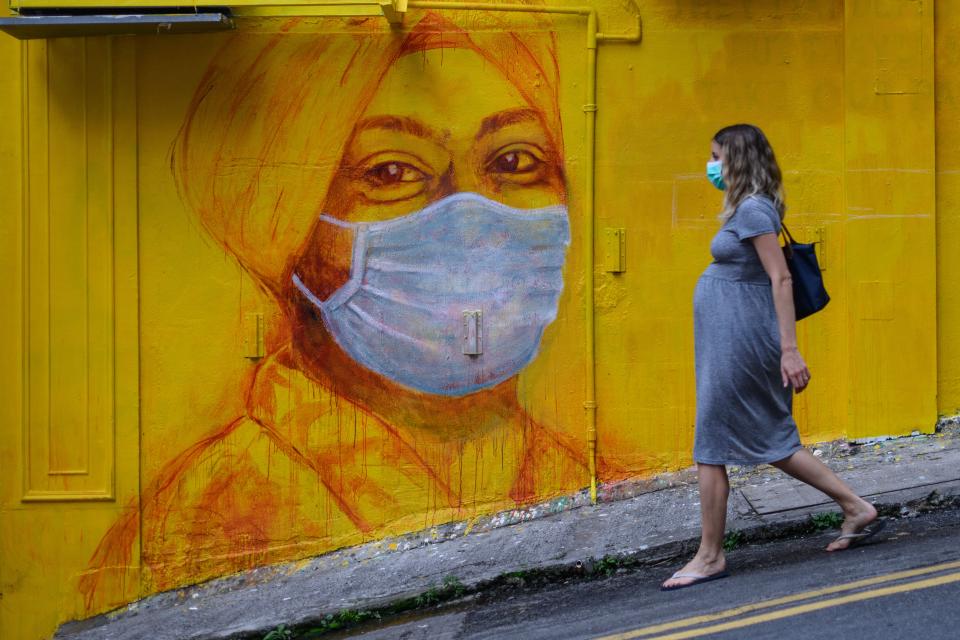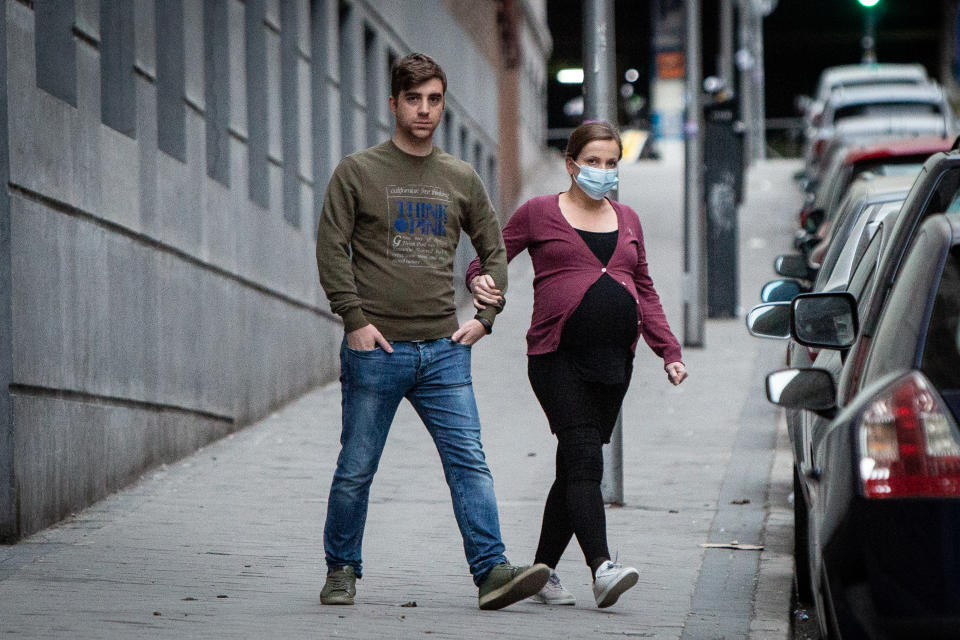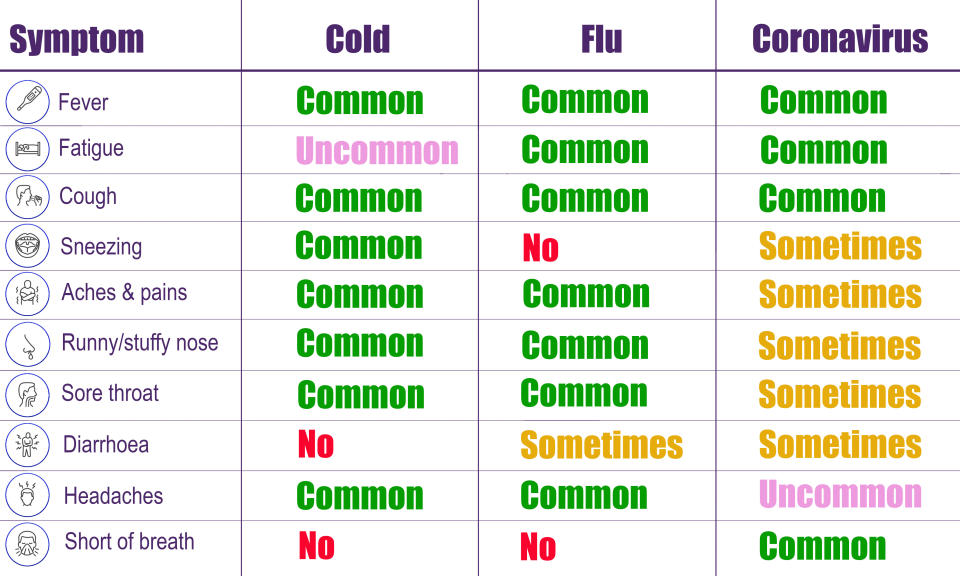Three newborns test positive for coronavirus in China but experts stress they unlikely caught it in the womb

Three newborn babies in China have tested positive for the coronavirus.
Scientists from Fudan University in Shanghai looked at 33 pregnant women who were confirmed to be carrying the virus.
Three of the women gave birth to babies who “presented with early onset infection” around two days later.
Tests of the women’s amniotic fluid, umbilical-cord blood and breast milk all came back clear.
The scientists claim “intrauterine” transmission “cannot be ruled out”, however, other experts stress infection likely occurred after the babies were “brought into the world”, potentially from the “mother’s fingers”.

The coronavirus is thought to have emerged at a seafood and live animal market in the Chinese city Wuhan, capital of Hubei province, at the end of last year.
It has since spread into 175 countries across every inhabited continent.
Since the outbreak was identified, more than 487,600 cases have been confirmed, of whom over 117,700 have “recovered”, according to John Hopkins University.
Latest coronavirus news, updates and advice
Live: Follow all the latest updates from the UK and around the world
Fact-checker: The number of COVID-19 cases in your local area
Explained: Symptoms, latest advice and how it compares to the flu
Cases have been plateauing since the end of February, with Europe now the epicentre of the pandemic.
The UK has had more than 9,600 confirmed cases and 465 deaths.
Globally, the death toll has exceeded 22,000.
‘Outcomes were favourable’ among the babies with coronavirus
The 33 pregnant women all gave birth at Wuhan Children's Hospital in January or February.
The babies that tested positive for the coronavirus were born via C-section after their mothers developed pneumonia, a recognised complication of the infection.
“Three of 33 infants, or 9%, presented with early onset infection”, said study author Professor Wenhao Zhou.
“Because strict infection control and prevention procedures were implemented during the delivery, it is likely the sources was maternal in origin”.
One of the newborns required resuscitation, but improved after two weeks on a ventilator, the scientists reported in the journal JAMA Pediatrics.
He also needed antibiotics for a bacterial infection and is thought to have developed sepsis.
The other two infants showed signs of lethargy, fever and pneumonia. One was also vomiting, which is not a symptom of the coronavirus.
All three babies went on to make a full recovery.
“Consistent with previous studies, the clinical symptoms from 33 newborns with or at-risk of [the coronavirus] were mild and outcomes were favourable”, said Professor Zhou.
Professor Andrew Shennan from King’s College London said: “These three cases show the babies are at risk of infection, but given when they are positive (two days after delivery), this could still be after delivery.
“We need more evidence to prove transmission from mother-to-baby can occur in pregnancy.
“[For now] mothers can be reassured their babies are usually safe even if the mother is infected.”
Professor Paul Hunter from the University of East Anglia agreed.
“Given that all the infected babies were first shown to be positive at two days, I suspect they were infected after being brought into the world rather than in the womb”, he said.
“This does not change the current consensus that transmission in the womb is unlikely”.
The fact the umbilical cord, blood and breast-milk samples came back negative provides further reassurance.
“This is evidence against the virus being transmitted from mother to foetus via the placenta”, said Professor Andrew Whitelaw from the University of Bristol.
“It seems more likely the three infants were infected very soon after delivery, possibly from the mother’s fingers”.
Nevertheless, the research highlights the importance of measures to prevent newborns catching the coronavirus.
“The lessons here are that pregnant women who are hospitalised with severe symptoms need particular attention at the time of birth, but that the overall risk to the child is limited”, said Professor Ian Jones from the University of Reading.

Transmission in the womb ‘not observed’ for other coronavirus strains
Boris Johnson’s fiancé Carrie Symonds is said to be doing her PR job from home while pregnant with the couple’s first child.
The prime minister has enforced draconian measures that require Britons to stay indoors as much as possible, previously saying it is “particularly important for people over 70, pregnant women and those with some health conditions”.
Pregnant women did not make up the 1.5 million vulnerable Britons who have been told to stay in their home for three months. These include severe asthmatics and blood-cancer patients.
As to whether expectant mothers could pass the infection on, this has not been observed with other coronavirus strains.
The circulating strain is one of seven that are known to infect humans, with others including the common cold and severe acute respiratory syndrome (Sars).
“Transmission from mother to baby of coronavirus has not previously been observed,” said Professor Shennan.
“Studies have shown coronavirus has not passed to amniotic fluid, foetal cord blood, placentas or the genital tract of infected mothers.”
Mid-March, scientists from the Huazhong University of Science and Technology looked at four pregnant woman who tested positive for the coronavirus before giving birth at Wuhan's Union Hospital.
Three out of four of the babies tested negative for the virus via a throat swab.
The fourth infant’s mother did not give permission for her baby to be tested.
The scientists concluded all four babies were healthy.
A previous study by the Zhongnan Hospital of Wuhan University looked at nine pregnant women with a mild coronavirus infection.
None of their babies tested positive for the pathogen, with breast-milk, amniotic-fluid and umbilical-cord samples all coming back clear.
Babies born vaginally who catch the coronavirus may pick it up from traces of the virus shed in a mother’s faeces or urine.
The Royal College of Midwives has urged expectant mothers to attend scheduled hospital appointments, calling them “essential to ensure the wellbeing of pregnant women and their babies”.
Some women report being asked to attend these appointments alone.

What is the coronavirus?
The coronavirus mainly spreads face-to-face via infected droplets coughed or sneezed out by a patient.
Symptoms tend to be flu-like, such as fever, cough and slight breathlessness.
Early research suggests four out of five cases are mild, however, pneumonia can come about if the infection spreads to the air sacs in the lungs, causing them to become inflamed and filled with fluid or pus.
The lungs then struggle to draw in air, resulting in reduced oxygen in the bloodstream and a build-up of carbon dioxide.
The coronavirus has no “set” treatment, with most patients naturally fighting off the infection.
Those requiring hospitalisation are offered “supportive care”, like ventilation, while their immune system gets to work.
Officials urge people ward off the infection by washing their hands regularly and maintaining social distancing.




